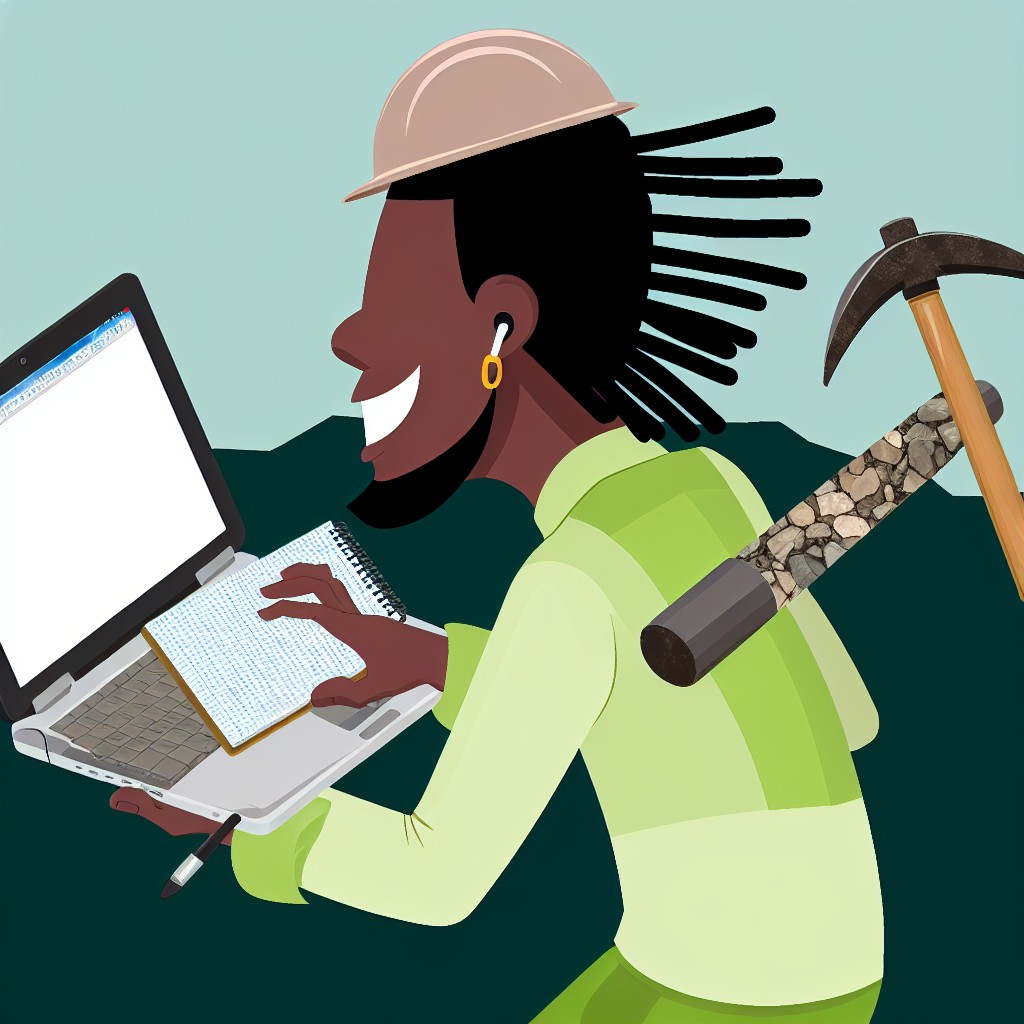Introduction
Fieldwork in applied geology plays a crucial role in conducting research and gathering data firsthand.
Without fieldwork, it would be challenging to understand the geological processes and formations accurately.
In this blog post, we will discuss the essential tools and tips that are essential for successful fieldwork in applied geology.
Essential Tools for Applied Geology Fieldwork
When heading out into the field as a geologist, having the right tools at your disposal can make a significant difference.
Here is a list of essential tools that every geologist should have when conducting fieldwork.
Rock Hammer
The rock hammer is one of the most important tools for a geologist.
It is used to break apart rocks, allowing for better examination of their composition and structure.
The strong, pointed end is perfect for chipping away at tough rocks.
The flat end can be used for prying apart layers.
Compass
A compass is essential for orienting yourself in the field.
It helps determine directions and map out locations accurately.
With a compass, you can easily navigate through unfamiliar terrains.
Ensure that your samples are collected from the right locations.
GPS Device
A GPS device is crucial for accurately plotting the coordinates of your study area.
It helps in mapping out your route effectively.
You can precisely mark the location of your samples for future reference.
This is helpful when revisiting sites or sharing data with other geologists.
Field Notebook
A field notebook is where you record all your observations, measurements, and findings during fieldwork.
It is a crucial tool for documenting your work in real-time.
This ensures that no details are missed or forgotten.
A well-maintained field notebook is a valuable reference for future analyses and publications.
Hand Lens
A hand lens is essential for examining minerals, textures, and small features in rocks.
It provides magnification, making it easier to identify and classify different components of a rock sample.
A hand lens can reveal crucial details that the naked eye might miss.
This aids in accurate rock analysis.
Field Backpack
A durable field backpack is essential for carrying all your tools, samples, and equipment comfortably during fieldwork.
Look for a backpack with multiple compartments and padded straps.
Choose water-resistant material to protect your essentials in various weather conditions.
Safety Gear
Safety gear includes gloves, safety glasses, and a first aid kit.
It is crucial for protecting yourself while working in the field.
Rocks, tools, and terrains can pose risks.
Therefore, prioritize safety by investing in high-quality gear and wearing it at all times.
Having these essential tools will enhance your efficiency and accuracy in the field.
These tools help ensure that you conduct your geology fieldwork safely and effectively.





